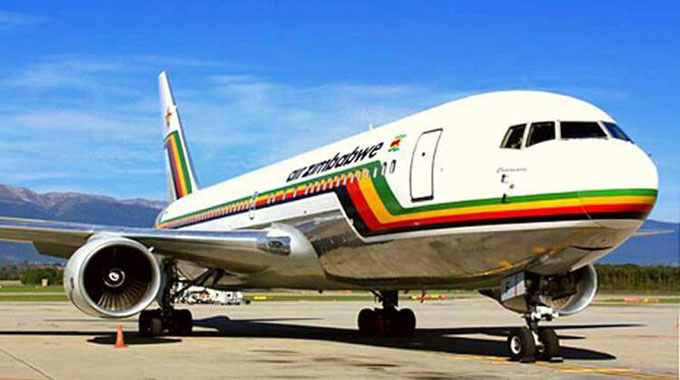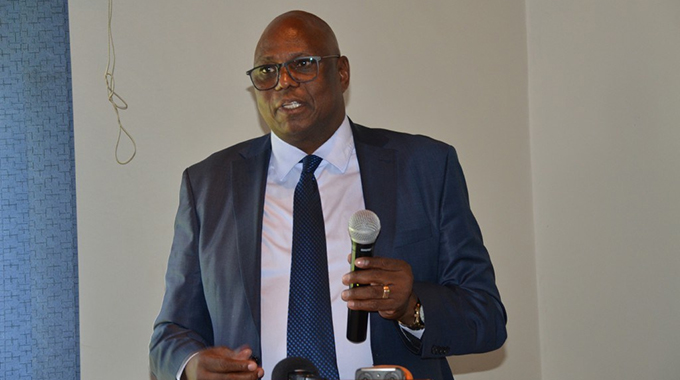EDITORIAL COMMENT : Revived Airzim needs sound management

Zimbabwe yesterday took delivery of a Boeing 777-200 ER, as the Government started making serious strides towards resuscitating the national airline, Air Zimbabwe (Airzim).
We are excited that another Boeing 777, which has already been paid for, is expected in the country in a few weeks.
It is now reality that our national airline, which many people had condemned to the dustbin of history, will fly again.
Suffice to say, a national airline is the pride of the nation.
The flag it carries as it flies, like a majestic eagle, is not a joke but a national statement. A motif of the nation. The pride of its people.
A Boeing 777-200ER is a wide-bodied plane developed and manufactured by Boeing Commercial Airplanes, commonly referred to as the Triple Seven.
The 777 was designed to bridge the gap between Boeing’s 767 and 747, and to replace older DC-10s or L-1011s.
The 777 first entered commercial service with United Airlines on June 7, 1995.
Longer range variants were launched on February 29, 2000 and were first delivered on April 29, 2004.
Since then, the 777 has stood the test of time.
Airzim, therefore joins the league of big airlines operating the bird, like Emirates, United Airlines, Air France and Cathay Pacific, among others.
Emirates has the biggest number at 148 planes.
Zimbabwe took delivery of this twin engine plane, whose most efficient use is long haul, mostly more than 8 hours of flight.
Reading into yesterday’s delivery, the Government is looking beyond local and regional markets and eyeing international business markets, from which the national airline had lost its market.
During its prime, Airzim had a huge market in the United Kingdom where is had scheduled direct flights, and yet today, there are no more direct flights between Harare and London.
Zimbabweans in the UK have had to use several connection hubs like Kigali, Brussels, Addis Ababa, Dubai, among others.
Travellers to and from the country have had to endure many connecting flights and obviously more time in transit.
Other airlines like Ethiopian Airlines and RwandAir have eaten into the Airzim market.
The resuscitation of Airzim is not only good for our general passengers, but also for our international engagement and our rejoining of the Commonwealth and the process leading to the attainment of Vision 2030.
The national airline is a vital cog in our national tourism brand, Zimbabwe a World of Wonders in which the Zimbabwe Tourism Authority (ZTA) has been reaching out to international tourist wholesalers.
Without a vibrant national airline, Zimbabwe’s visibility in the skies has been poor.
We are told the Government is working on acquiring more planes for its domestic and regional routes as it moves to enable Airzim to reclaim its market share.
There is no doubt that the revival of Airzim feeds into the New Dispensation’s international re-engagement and ZTA perception management programmes.
It also feeds into ZTA’s celebrity host programme, as it will fly selected celebrities into the country with our own airline and to our own tourist resorts.
Having said that, we hope that Government’s efforts, albeit in difficult economic times, to invest in Airzim will be complemented by sound and correct management at the airline.
The Government has played its part an indeed whoever is appointed to run Airzim after its judicial management, should ensure that the airline does not collapse.
A dearth in corporate governance like witnessed in the past should not be allowed to creep back.
Airzim should be run like business and business has rules and ethics. It is business.
Case studies from other airlines on how to do business are available. We all know what happened in the past at Airzim.
The worker-plane ratio at the airline was not sustainable.
The business model was out of sync with reality. The business model was outdated.
Persistent litigation with workers, non-payment of debts and other vices were rampant.
It will be sad if all the efforts by the Government go to waste.
These planes are expensive and it takes a committed Government to fork out millions of United States dollars given our economic circumstances.
Such efforts should surely not go to waste.









Comments